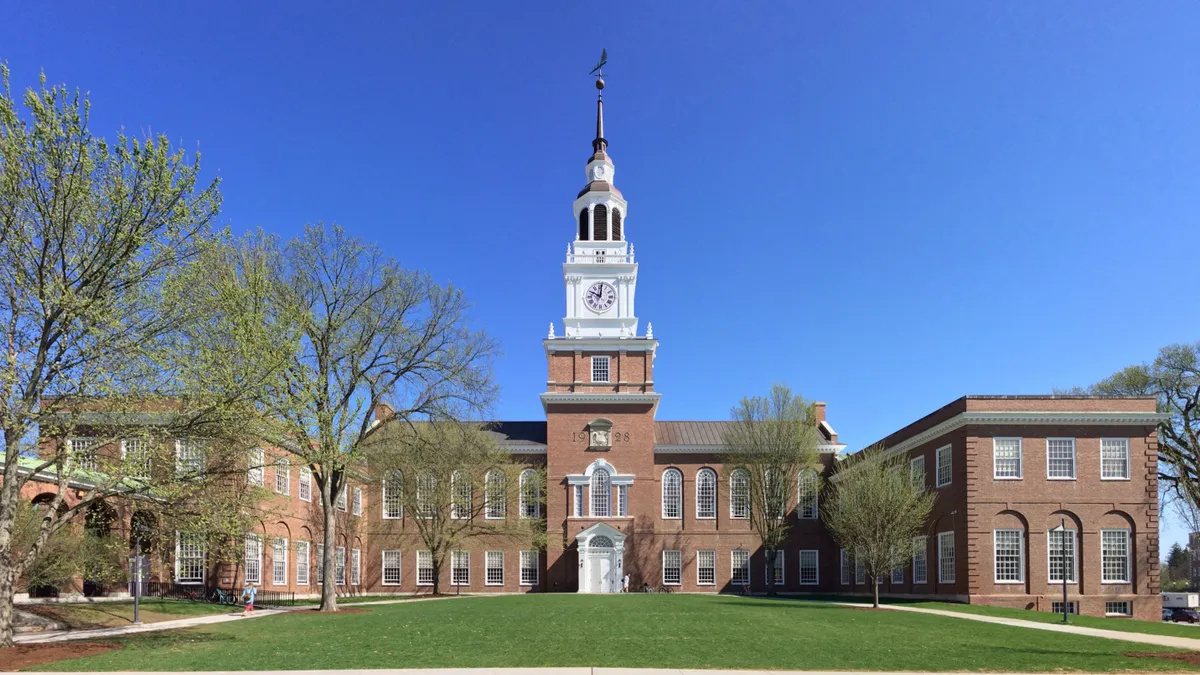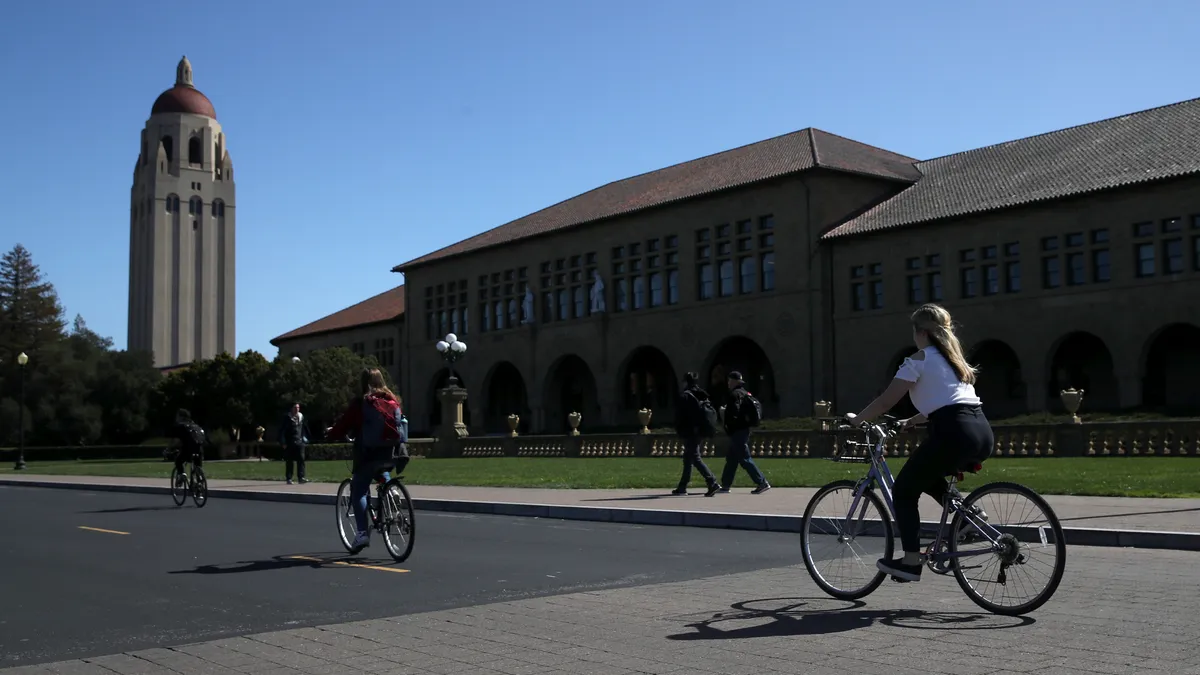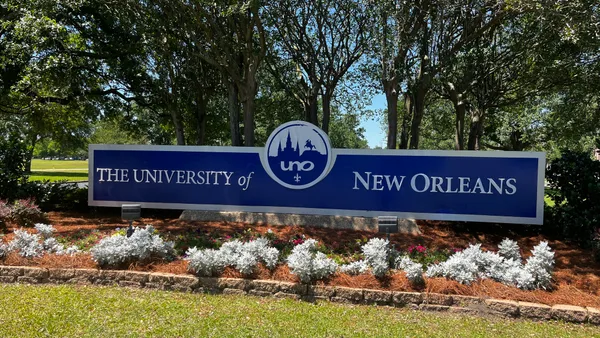Dive Brief:
- Dartmouth College will end use of all institutional and federal undergraduate loans in its financial aid packages and replace them with scholarship grants, beginning with the summer term this week.
- The Ivy League institution in New Hampshire said more than 65 families had donated about $80 million to its endowment, enabling it to eliminate loan requirements for students who receive need-based aid and whose families earn more than $125,000 a year. Dartmouth last year scrapped student loans for undergraduates with an annual family income of $125,000 or less.
- Several other wealthy colleges, including Dartmouth’s Ivy League peers like Harvard, Princeton and Brown universities, maintain no-loan policies.
Dive Insight:
Colleges that have dropped loan requirements argue that doing so helps recruit more students from low-income backgrounds, as they would otherwise pay high tuition and fees.
No-loan practices have been shown to help those from modest means, to an extent. A recent study from researchers at Pennsylvania State and Michigan State universities found that no-loan policies at public institutions bolstered the share of students from the lowest two income quintiles, which are families who earn about $40,000 or less a year.
However, the study also noted that those from the second-lowest quintile benefited much more from these policies than those from the lowest. That’s likely because ditching loan requirements doesn’t guarantee that all of a student’s expenses will be covered.
Colleges only subsidize students based on what’s known as their demonstrated financial need. This has historically been calculated by subtracting a student’s expected family contribution — a figure accounting for family wealth and income — from an institution’s cost of attendance.
Dartmouth recently said it would eliminate any family contribution for those with annual incomes of $65,000 or less a year.
The college said its new no-loan policy will help alleviate debt for hundreds of middle-income families.
About 450 Dartmouth undergraduates have loans in their 2022-23 financial aid offers, the institution said. Replacing their loans with grants will reduce their required borrowing by as much as $5,500 for each student per year, or $22,000 over four years.
“Dartmouth already offers generous assistance to students from low-income backgrounds, and this move to a universal no-loan policy will help middle-income families who often have to stretch their budgets to meet the cost of higher education,” Director of Financial Aid Dino Koff said in a statement.
The policy is not retroactive and only applies to loans taken out by current and prospective students beginning this summer term.
Contributions to Dartmouth’s Call to Lead fundraising campaign facilitated other financial aid-related changes as well. To date, the university has received $388 million in endowed money for financial aid. Its goal is to raise a total of $500 million through June 2023.
Dartmouth recently extended need-blind admissions — which means the college does not consider how much financial aid an applicant may require when deciding to admit them — to international students. And it broadened financial aid support for undergraduates studying off campus, including in study abroad programs.
The college’s endowment was $8.5 billion as of the end of June last year.
It’s not the only top-ranked private institution to change its financial aid packaging in recent months, which is notable as wealthy colleges’ admissions practices come under heightened scrutiny.
Dartmouth is one of 17 highly selective private universities being sued by former college students who allege they engaged in a price-fixing ploy to drive up the cost of higher education. The students accuse them of not truly being need-blind in admissions.
Massachusetts’s Williams College in April said it would become the first institution in the U.S. to entirely eliminate loans and work requirements from financial aid offers.
Whitman College, in Washington state, also last month announced it would also start fulfilling in-state students’ full demonstrated financial need beginning fall 2023.















